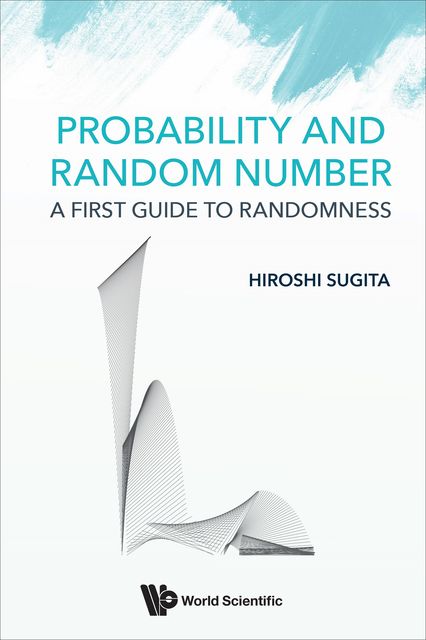We use cookies to improve the Bookmate website experience and our recommendations.
To learn more, please read our Cookie Policy.
To learn more, please read our Cookie Policy.
Accept All Cookies
Cookie Settings
Something went wrong. Try again.

Read in our apps:
iOS
·Android
Hiroshi Sugita
Probability and Random Number
Notify me when the book’s added
Impression
Add to shelf
Already read
Report an error in the book
Share
Facebook
Twitter
Copy link
To read this book, upload an EPUB or FB2 file to Bookmate. How do I upload a book?
- About
- Readers2
This is a book of elementary probability theory that includes a chapter on algorithmic randomness. It rigorously presents definitions and theorems in computation theory, and explains the meanings of the theorems by comparing them with mechanisms of the computer, which is very effective in the current computer age.
Random number topics have not been treated by any books on probability theory, only some books on computation theory. However, the notion of random number is necessary for understanding the essential relation between probability and randomness. The field of probability has changed very much, thus this book will make and leave a big impact even to expert probabilists.
Readers from applied sciences will benefit from this book because it presents a very proper foundation of the Monte Carlo method with practical solutions, keeping the technical level no higher than 1st year university calculus.
Contents: Mathematics of Coin TossingMathematical ModelRandom NumberLimit TheoremMonte Carlo MethodInfinite coin TossesRandom Number:Recursive FunctionKolmogorov Complexity and Random NumberLimit Theorem:Bernoulli's TheoremLaw of Large NumbersDe Moivre–Laplace's TheoremCentral Limit TheoremMathematical StatisticsMonte Carlo Method:Monte Carlo Method as GamblingPseudorandom GeneratorMonte Carlo IntegrationFrom the Viewpoint of Mathematical StatisticsAppendices:Symbols and TermsBinary Numeral SystemLimit of Sequence and FunctionLimits of Exponential Function and LogarithmC Language Program
Readership: First year university students to professionals.
Keywords:Probability;Probability Theory;Randomness;Random Number;Pseudorandom Number;Monte Carlo Method;Monte Carlo IntegrationReview:Key Features:This is the first book that presents both probability theory and algorithmic randomness for from 1st year university students to experts. It is technically easy but worth reading for experts as wellThis book presents basic limit theorems with proofs that are not seen in usual probability textbooks; for readers should learn that a good solution is not always uniqueThis book rigorously treats the Monte Carlo method. In particular, it presents the random Weyl sampling, which produces pseudorandom numbers for the Monte Carlo integration that act complete substitutes for random numbers
Random number topics have not been treated by any books on probability theory, only some books on computation theory. However, the notion of random number is necessary for understanding the essential relation between probability and randomness. The field of probability has changed very much, thus this book will make and leave a big impact even to expert probabilists.
Readers from applied sciences will benefit from this book because it presents a very proper foundation of the Monte Carlo method with practical solutions, keeping the technical level no higher than 1st year university calculus.
Contents: Mathematics of Coin TossingMathematical ModelRandom NumberLimit TheoremMonte Carlo MethodInfinite coin TossesRandom Number:Recursive FunctionKolmogorov Complexity and Random NumberLimit Theorem:Bernoulli's TheoremLaw of Large NumbersDe Moivre–Laplace's TheoremCentral Limit TheoremMathematical StatisticsMonte Carlo Method:Monte Carlo Method as GamblingPseudorandom GeneratorMonte Carlo IntegrationFrom the Viewpoint of Mathematical StatisticsAppendices:Symbols and TermsBinary Numeral SystemLimit of Sequence and FunctionLimits of Exponential Function and LogarithmC Language Program
Readership: First year university students to professionals.
Keywords:Probability;Probability Theory;Randomness;Random Number;Pseudorandom Number;Monte Carlo Method;Monte Carlo IntegrationReview:Key Features:This is the first book that presents both probability theory and algorithmic randomness for from 1st year university students to experts. It is technically easy but worth reading for experts as wellThis book presents basic limit theorems with proofs that are not seen in usual probability textbooks; for readers should learn that a good solution is not always uniqueThis book rigorously treats the Monte Carlo method. In particular, it presents the random Weyl sampling, which produces pseudorandom numbers for the Monte Carlo integration that act complete substitutes for random numbers
more
This book is currently unavailable
720 printed pages
- Original publication
- 2017
- Publication year
- 2017
Have you already read it? How did you like it?
👍👎
fb2epub
Drag & drop your files
(not more than 5 at once)

